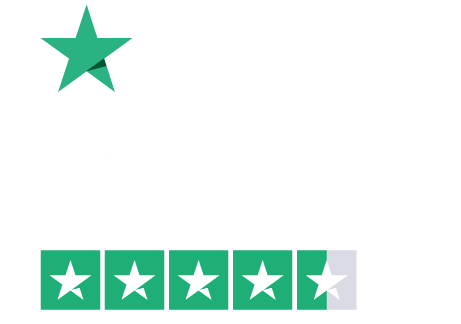Are you considering hiring an in-house payroll management team to handle your payroll processes? Well, even if it seems flexible, with enhanced data privacy and control, there are more things that you must account for. This means you also need to hire staff, train them, and utilize accurate accounting software for your use.
This is where service bureau payroll come in. Why hire an entire in-house team, pay for ongoing software subscriptions, and worry about data security, when payroll experts can deliver the same services without hassle? When payroll experts can help you provide just that, without any hassle or worry.
This article takes an in-depth look at the differences between a service bureau payroll provider and an in-house payroll team, helping you determine the best fit for your business.
What is Bureau Payroll
A payroll bureau can be considered a service provider that manages your payroll processes. They are responsible for calculating and paying all your employee wages, paying employee taxes and managing workplace pension schemes.
The payroll bureau is often mistaken for a form of partial payroll outsourcing; however, it actually involves completely outsourcing your payroll functions and responsibilities to third-party experts.
Key Features of Bureau Payroll
Here’s what you need to do if you have bureau payroll in place for your company
Send Employees’ Hours:
When using external payroll services, you’ll need to send your employees’ hours, including check-in and check-out times, along with other relevant details.
Handle Your Payroll Compliance:
The payroll bureau services will handle all compliance with HMRC. Payroll management services help you handle complex legislative tasks such as Real Time Information (RTI) submissions, auto-enrolment of pensions, and National Insurance contributions.
Have the Latest Technology in Place:
A payroll bureau has all the necessary tools to manage your payroll processes. Tools like Bright Pay, QuickBooks Payroll, and more can be used by payroll bureau services.

Payroll Service Bureau Advantages
Slash Your Payroll Costs
Outsourcing to a payroll bureau eliminates the need for in-house systems, software, and salaries, delivering cost savings from day one.
Fully Aligned with HMRC
Expert payroll providers stay updated with the latest HMRC regulations, ensuring every submission and deduction is legally compliant.
Skip the Training Hassle
With specialists handling your payroll, there’s no need to train internal staff you get instant access to professional-grade expertise.
Save Several Hours Every Week
Automated processes and expert handling reduce admin time, freeing up hours you’d otherwise spend on calculations, filings, and corrections.
Instant Recovery, Zero Disruption
Top-tier payroll bureaus use secure, cloud-based systems with automatic backups so your payroll data is safe, retrievable, and always available, even in a crisis.
Pros and Cons of In-House Payroll
Pros | Cons |
You have full control over how payroll is done | It requires training your office staff |
You can get payroll info and reports right away | Your team must keep up with changing tax laws |
Payroll can be customized exactly how your company needs it | Mistakes can happen if your staff isn’t experienced |
Employee data stays within your company | You have to pay for payroll software |
Works smoothly with your other HR and accounting systems | Harder to handle if your company grows fast |
Your team learns your company’s payroll needs well | Your team is responsible for following all rules |
Can easily handle unique pay situations and policies | Payroll slows down if key staff are absent |
What is In-House Payroll
An in-house payroll means that you hire an entire team internally to manage your business payroll. You need to have your own staff, train them in your business structure, and implement key payroll software. You will also need to calculate tax on employee wages and file taxes on their behalf to HMRC.
Key Features of In-house Payroll Team
An in-house payroll management includes the following features for your company:
Internal Payroll Management: Your company’s payroll is managed by HR or your company’s accounting department.
Full Control Over Your Expenses: Managing payroll in-house gives you complete control over the entire process, from data entry to issuing employee payments. This flexibility allows you to adjust your processes as needed and implement corrections immediately.
Always Check for Latest Payroll Compliance: Your in-house payroll team always needs to check the latest regulations from HMRC to ensure they remain compliant. So, you are now responsible for updating all the legal and HMRC reporting.

In-house Payroll Benefits
Keep Your Payroll Data Secure
Managing payroll internally means your sensitive employee and financial data never leaves your company’s secure environment, reducing risks of breaches.
Instant Access to Payroll Reports
With in-house payroll, your team can generate, and access detailed payroll reports immediately without any delays or waiting on external providers.
Cut Payroll Costs for Large Business
For larger organizations, handling payroll internally can reduce ongoing vendor fees and leverage existing staff expertise, resulting in significant cost savings.
Payroll Expertise You Know and Trust
Your dedicated internal payroll team understands your company’s specific needs and culture, providing trusted and personalized payroll management.
Payroll That Reflects Your Company Values
In-house payroll allows you to customize processes and policies that align closely with your company’s mission, culture, and employee expectations.
Pros and Cons of Payroll Bureau
Pros | Cons |
Saves your team time by handling all payroll tasks | Less direct control over payroll process |
Experts ensure compliance with tax laws and HMRC | You must trust the bureau with sensitive data |
Reduces risk of payroll errors and penalties | Can be costly, especially as business grows |
Predictable, fixed monthly or per-employee fees | Limited flexibility for highly customized payroll |
Access to latest payroll technology and updates | Dependence on vendor’s timelines and support |
Scales easily with your business size | Switching providers can be complex and disruptive |
Frees up your staff to focus on core business | Potential delays in resolving issues |
Payroll outsourcing vs in-house: What to Choose
Whether you should go with a bureau payroll service or an in-house payroll depends largely on the size of your business, available resources, as well as the priorities of your business. If you operate as a small or medium-sized enterprise with little payroll experience or resources, outsourcing payroll to a payroll bureau is usually what works best. It’s a time saver, lowers compliance risk, provides predictable costs, and you just don’t have to buy any software or training.
On the other hand, larger companies tend to have more complicated payroll requirements and may benefit from in-house payroll. This provides them with total independence, flexibility to tailor payroll processes, and efficient access to critical information.
In-house Payroll and Payroll Bureau Services Cost Comparison
Managing payroll in-house comes with a wide range of costs. You will need to pay yearly payroll software subscriptions, which may range from £20 to £200 per month. Additionally, you will have to pay £2–£5 per hour for every employee you hire.
Not just that! The significant time required for payroll processing is also important to account for. Your HR or accountant will have to spend at least 5 hours daily on your payroll processes along with regular training and compliance updates.
On the other hand, the service bureau payroll will cost you somewhere between £20 to £150 per month. In the long run, it’s often more cost-effective, as it eliminates expenses related to software, staffing, and compliance risks. Bureau payroll also has the capability to scale with your business and doesn’t require you to have any resources, making it a suitable option for small-scale businesses.

Manage Payroll Operations Effortlessly with Payroll Bureau
Small businesses often face the question of which payroll system to implement. Well, this blog discusses in detail when to hire an in-house team and when to hire a payroll bureau. In general businesses prefer to hire payroll bureaus because they don’t have to hire and manage employees. Additionally, they also consider it cost efficient without any software subscription to pay. Thus, choosing a payroll bureau is quite a better option for businesses.
A small business or large enterprise looking for the best payroll system for small business? Lanop Business and Tax Advisors makes your payroll a plain sale for you. So, wait no further and get our payroll bureau services UK now!
FAQs
Which option is more cost-effective: service bureau payroll or in-house payroll?
Hiring a payroll bureau is a more cost-effective option, since you don’t have to pay for the software subscriptions or hourly wages of in-house employees. You just have to pay a lump sum amount which costs you considerably less than hiring an in–house payroll team.
How do I choose between service bureau payroll and in-house payroll?
As a small to medium-sized business, looking to save money and avoid the challenges of compliance and software management, go with service bureau payroll. Choose in-house payroll if you’re a large company, if you need total control, customization, the ability to integrate with your internal systems, and if you can manage it.
Is the service bureau payroll secure and compliant with regulations?
Yes, an average payroll service bureau is safe and compliant. Several payroll bureaus invest heavy revenues into robust security features to safely handle sensitive data and keep abreast of current tax laws and employment legislation, allowing you to comply with HMRC and other statutory bodies accurately.
Can the service bureau payroll handle complex payroll requirements?
Yes, Service Bureau payroll is capable of supporting sophisticated payroll needs, such as multiple pay rates, benefits, bonuses, and deductions. Bureaus know how to handle complex payroll environments by adopting the latest systems and experienced employees. This is how they maintain an accurate payroll, even for companies with complex or consistently changing payroll structures.
How long does it take to transition to a service bureau for payroll?
It normally takes about 2 days to a few weeks to transition to a service bureau payroll, depending on the complexity of your payroll system. It requires gathering employee data, setting up the bureau system, training staff, and ensuring compliance. Many bureaus partner with businesses to transition smoothly and seamlessly with limited downtime.









